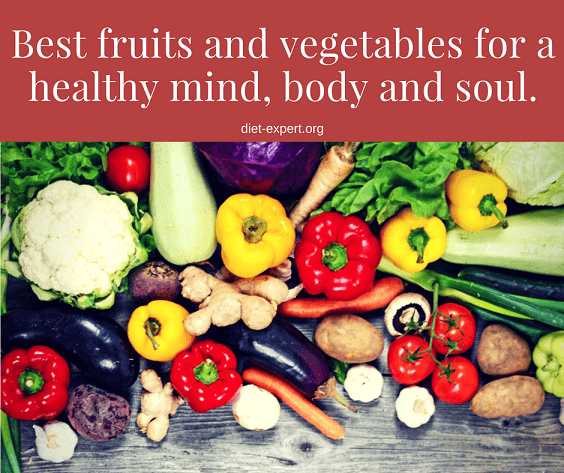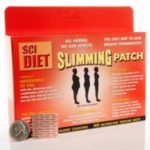Are you serious about staying fit and taking care of your body?
If yes, join me in this article, because today I’m going to share with you the best fruits and vegetables that can help you to take proper care of your overall health.
I’m telling you this because over the years I’ve noticed that most of us have no idea about how to take proper care of our bodies anymore.
We don’t even know what the ‘right foods’ are to eat anymore.

Yes, there are people in the world whose income depends on twisting the facts enough about these matters to CONFUSE US ALL (mainly so we’ll buy whatever it is they’re selling).
Most of the time we’re bombarded with the list of foods and vegetables to eat and believe me we find it extremely difficult which one to choose from this list.
The list that we get is something like this:
- Eat at least 80% raw fruits and veggies but also
- Too many raw veggies can damage the digestive system.
- Eat lots of orange and yellow vegetables, especially carrots and bell peppers.
- Avoid carrots and bell peppers because the sweeter vegetables might affect your insulin levels.
- Eat more beans for the added fiber.
- Avoid beans because when raw they’re toxic for your health.
- Fruits and vegetables are healthy; eat, and juice, as many of them as you can comfortably eat.
- If your metabolism is a ‘protein type’, you should AVOID too many fruits and vegetables and drink no juice at all.
Trust me even I get confused sometimes by this sort of advice.
Imagine how weirded-out the average individual must feel!
Once I received an email from my subscriber with scared-sounding questions like, ‘I read that raw vegetable juice can be bad for your health unless you have the right metabolism for it … should I throw out my juicer, then?
Here’s the simple answer:
NO.
In fact, let’s just get one basic fact out of the way:
ALL fruits and vegetables are GOOD FOR YOU.
It doesn’t matter what the articles, the magazines, or the idiotic ‘health blogs’ say.
Just pay attention to your body and how it feels; think about how your belly feels after a meal; and make your decisions based on these SIMPLE AND NATURAL criteria.
Yes, you can ignore almost ALL of the information out there when it comes to the nitty-gritty about fruit and veg.
Especially the stuff that focuses on micronutrients (‘Vitamin K15 might just be the key to curing cancer, diabetes, and AIDS! Everyone start eating curly kale ten times a day!
And ESPECIALLY the stuff that winds up with a sales pitch about dietary supplements or protein powder that you can buy at this new amazing price (but the moment you click away from the screen, the offer’s GONE, so BUY NOW!).
Sound familiar?
Yep, there are MANY people out there who would like us to believe whatever it is they’re sales-writing about today.
And who are VERY skilled at concealing their ulterior motives (which are usually somewhere along the lines of selling us a box of Krill oil or Vitamin E tabs at this amazing marked-down price).
As a result, there are QUITE LITERALLY people out there right now who don’t know what to eat anymore.
We are confused about fruit and veg, and how to go about eating enough of the ‘right kinds’
So let’s answer the question once and for all:
Table of Contents
What Are the Best Fruits and Vegetables to Eat?
Here’s the answer:
The best fruits and vegetables you can eat are the ORGANIC kind.
No matter what type of fruit or vegetable it is, if it’s ORGANIC, it’s the best thing you can put into your body.
And generally speaking, the closer it is to its natural state – i.e. the less cooked it is – the better also.
(Of course, some vegetables aren’t that great raw – raw potatoes can actually be a little bit toxic, and uncooked okra is, taste-wise, nobody’s friend – but for the most part, raw is better than cooked.)
If You REALLY Want to Get Scientific
Some of us are perfectionists: we want to make sure we’re ‘doing it right’.
If you are one of these strange people – people who would rather consult a list of ‘the best produce’ rather than just figuring out what they feel like eating – then here is a great way to ensure you’re getting the maximum amount of antioxidants in any given day:
Look at the ORAC units.
ORAC (Oxygen Radical Absorbance Capacity) is a unit of measurement for the antioxidant strength of a fruit or vegetable.
The higher a fruit or vegetable scores in ORAC units, the more antioxidant power it has, and the ‘better’ it is for you.
In studies done, it’s been proven that eating high-ORAC foods:
- Raises the antioxidant power of human blood by 10 to 25 percent.
- Prevents long-term memory loss.
- Protects capillaries from oxygen damage.
Top-scoring fruits include prunes, blueberries, strawberries, cherries, plums, and oranges; while top-scoring vegetables include kale, spinach, Brussels sprouts, broccoli, beets, and eggplant.
(For a full list of ORAC values, go here: http://oracvalues.com)
But you don’t need to consult a table every time you go grocery shopping.
For an easy way of choosing high ORAC-scoring produce, simply check the color of the item: darker, more ‘saturated’ colors (kale, spinach, blueberries) tend to possess more antioxidant value than pale colors (white grapes, apricots, iceberg lettuce).
The minimum recommended amount of ORAC units is 3,000 per day – which you would get from eating a couple handfuls of fruit and veg each day.
Not such a big fan of downing bushels of fruit and vegetables?
Here’s a tasty fact: organic fruits and vegetables contain as much as one-third more ORAC units per item than conventionally-farmed produce. So if you eat organic food, you need LESS OF IT than you do of the non-organic kind.
What’s the Big Deal About Organic? And What Does ‘Organic’ Mean, Anyway?
‘Organic’ means the food has been grown in harmony with nature, without chemicals and without harming the environment. Organic food is truly ‘whole food’.
Non-organic food, on the other hand, is invariably tainted with chemical residues, pesticide build-up, and fungicides, many of which are known carcinogens. Furthermore, non-organic produce is usually genetically modified, an issue with its own, alarming health issues.
Simply put, eating organic food is the most powerful (and the easiest!) way to ensure that your food will truly harmonize with your body, has not been genetically modified, and contains no chemical residue or harmful additives.
Let’s get a little more specific:
Key differences between organic and non-organic farming:
- Non-organic farmers use chemical fertilizers to grow crops, which deplete the soil over time and lead to nutritionally-deficient produce and ‘exhausted’ soil.
- Organic farmers use natural fertilizer, which nourishes and feeds the soil and is both environmentally-friendly and environmentally sustainable.
- Non-organic farmers use insecticides, fungicides, and pesticides to get rid of insects and wildlife around crops; these residues remain in the soil and on the crops, and can create imbalances in the local ecosystem (which, ironically, often result in more insects and pests).
- Organic farmers use natural methods for pest control, including barriers around the crops, insect predators (for example, ladybugs control aphids), and living plant repellents (e.g. geraniums.) There is a whole science to non-chemical pest control; organic farmers have turned it into an art form.
- Non-organic farmers use chemical herbicides to get rid of weeds, which poison the soil and are absorbed into the produce.
- Organic farmers use methods such as crop rotation, hand weeding, mulches, and tillage to control weeds, so that no poisons touch the soil or the produce.
Three other points worth considering:
- The health risks associated with non-organic farming chemicals include neurotoxicity, endocrine disruption, carcinogenicity, and immune system depression.
- Non-organic produce has significantly fewer micronutrients than organic produce, and more nitrates (a toxin).
- Non-organic produce often tastes ‘mealy’, mushy, and kind of boring; organic produce tends to have intense, almost startling flavors, because it’s grown naturally and ‘the way Nature intended’.
Don’t Want to Pay for Organic?
If you don’t want to buy organic groceries because they’re too pricey, then for the love of God.
Avoid these 12 items:
- Peaches
- Apples
- Bell peppers
- Celery
- Nectarines
- Cherries
- Strawberries
- Lettuce
- Grapes
- Pears
- Spinach
- Potatoes
They’re the ones with the official ‘highest chemical saturation’ when grown non-organically.
The fruits and veg that tend to have less chemicals applied when farmed non-organically include:
- Broccoli
- Eggplant
- Cabbage
- Banana
- Kiwi
- Asparagus
- Mango
- Pineapple
- Avocado
- Onion
Meaning that they’re (relatively speaking, of course) somewhat safer than their more heavily-saturated cousins.
I will stop here. I hope you enjoyed reading this article on best fruits and vegetables to eat, and if you really did please do not forget to share it on your favorite social media.
Bye for now, keep coming back.


